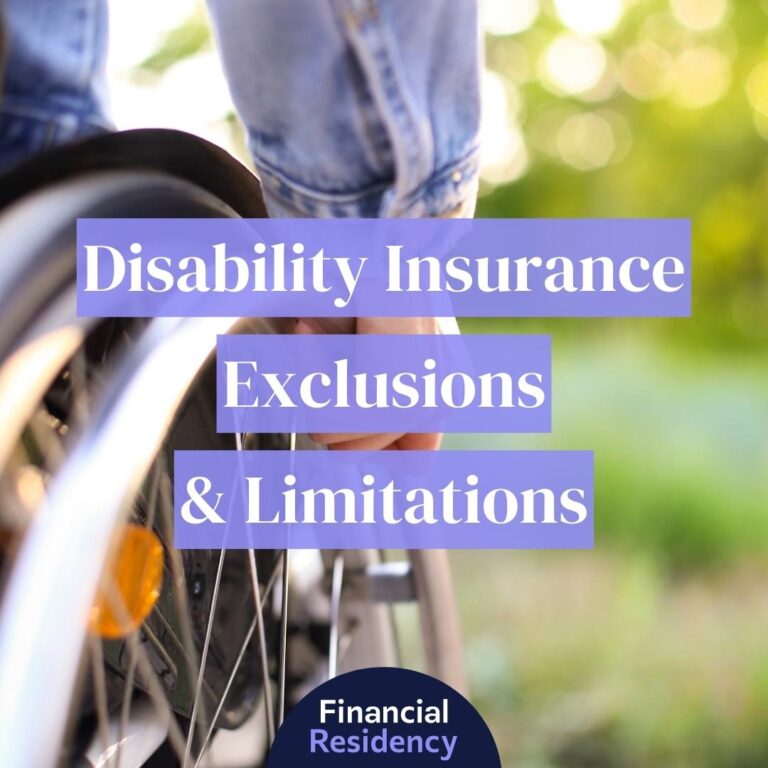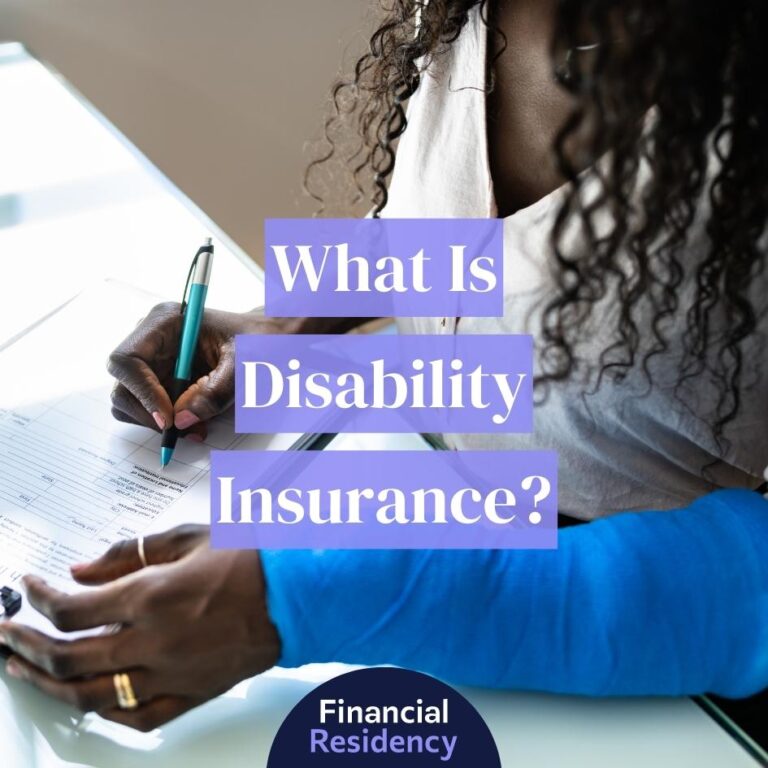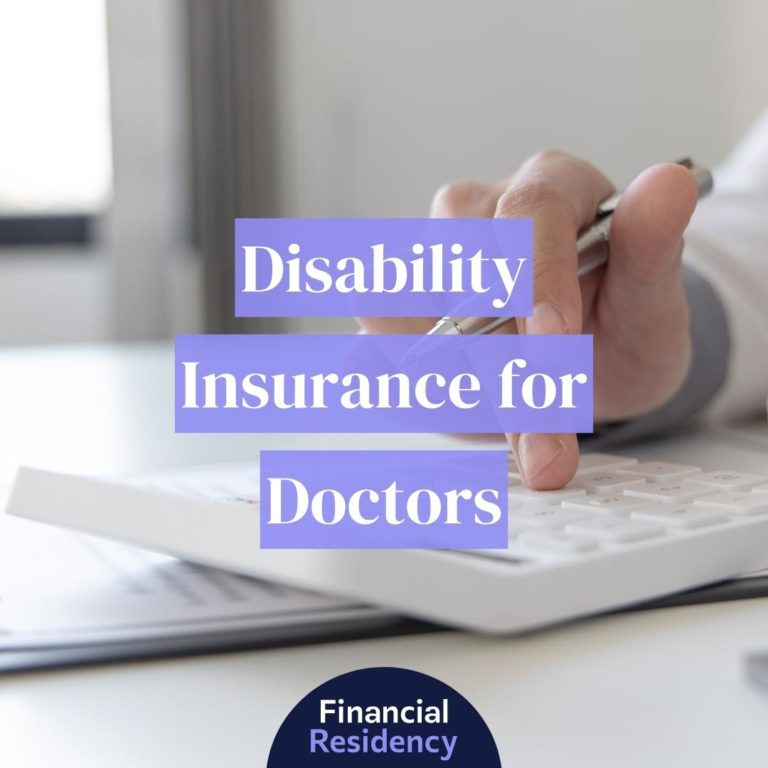Cardiologists are among the highest-paid medical specialists. In the face of unexpected health issues, it’s essential for these physicians to have a safety net in place.
Disability insurance serves as a financial safeguard, ensuring a steady income in case of a disabling event.
Before purchasing a policy, it’s important to understand how disability insurance works. In this guide, we’ll provide insights into the importance of disability insurance for cardiologists and highlight the factors you need to consider to choose the right policy.
What is Disability Insurance for Cardiologists?
Disability insurance for cardiologists is a type of insurance that provides financial support if you’re unable to work due to an injury or illness.
It typically pays out a percentage of your income while you’re unable to work. This can help cover living expenses, medical bills, and other costs while you recover.
Disability coverage provides financial stability if you’re unable to work due to an injury or illness such as a heart attack, stroke, or injuries from a car accident.
Furthermore, it can provide peace of mind for you and your loved ones.
Learn more:
Why Do Cardiologists Need Disability Insurance?
In the cardiology field, your ability to work at full capacity is essential to your livelihood. Because cardiologists are some of the highest-paid doctors, it’s crucial for physicians in this specialty to protect their assets with a disability policy.
With several subspecialties, cardiologists perform hyper-specific roles. Securing specialized own-occupation coverage can help ensure that you can practice in another role if you’re able to, while still earning disability income.
Bottom line—a physician disability insurance policy is an essential investment for cardiologists that can provide income protection and peace of mind.
Types of Disability Insurance for Cardiologists
There are a few different types of disability insurance for cardiologists, including short-term disability insurance, long-term disability insurance, group disability insurance, and individual disability insurance.
Here’s a closer look at each.
Short-Term Disability Insurance
Short-term disability insurance provides coverage for a short time, typically up to six months. This type of insurance is designed to replace a portion of your income if you’re unable to work for a short period due to a covered illness or injury.
Short-term disability insurance typically has a waiting period before benefits begin. It can last anywhere between a few days and a few weeks.
Long-Term Disability Insurance
Long-term disability insurance provides coverage for a longer period, lasting several years or up to retirement age.
This type of disability insurance coverage is designed to replace a portion of your income if you’re unable to work for an extended period due to a covered illness or injury.
Long-term disability insurance typically has a waiting period of several weeks to several months before you start receiving monthly benefits.
Group Disability Insurance
Group disability insurance is a type of policy provided by employers or professional organizations. It typically offers lower premiums than individual disability insurance policies because the risk is spread across a larger group of people.
Group coverage is usually offered as a voluntary benefit, meaning you can choose to enroll and pay the premiums yourself. Typically, Social Security and group disability insurance benefits alone are insufficient for doctors.
Individual Disability Insurance
Individual disability insurance is a personal policy that provides coverage tailored to your specific needs.
While it typically comes with higher premiums than a group policy, an individual disability insurance plan provides more customization, flexibility, and coverage than group disability insurance.
Key Features of Disability Insurance for Cardiologists
With so many options available, choosing the best disability insurance can be challenging.
Here are some features that cardiologists in particular should look for in a disability policy:
Own-occupation policy
It’s essential to understand how your disability insurance company defines disability. As a cardiologist, you should opt for a policy with an own-occupation definition of disability, which considers you disabled if you can’t perform your particular specialty. This ensures that you will receive benefits if you can’t perform the majority of your previous duties as a cardiologist, even if you can still work in a different medical specialty if it results in a loss of income.
Benefit period
The benefit period is the length of time you receive disability benefits. It’s important to choose a policy with a benefit period that’s long enough to cover the duration of your disability. Generally, the longer the benefit period, the more expensive the policy will be. However, it’s worth investing in a policy with a longer benefit period to ensure you get benefits for as long as you need them.
Elimination period
The elimination period is the length of time you have to wait before you can start receiving disability benefits. It’s important to choose a policy with an elimination period you can afford to wait out. In general, the longer the elimination period is, the lower your premiums will be.
Partial disability coverage
Partial or residual disability coverage provides benefits even if you don’t qualify for total disability, paying out If you can only work part-time or in a reduced capacity. This policy feature ensures that you’ll receive some income if you can’t work full-time as a cardiologist as the result of a qualifying illness or injury.
Non-cancellable and guaranteed renewable policies
These features ensure that coverage won’t be canceled or changed by the insurance company as long as the policyholder pays premiums on time.
Future increase option
This optional rider is a good fit if you’re a resident or fellow. It allows you to increase your disability plan’s benefit if your finances change later in life. With this rider, you can purchase additional coverage without undergoing additional medical underwriting.
Student loan rider
If you’re a physician with extensive medical school debt, you may also want to consider adding a student loan rider to your policy. This add-on covers payments on your student loan debt while you’re disabled, up to a set limit. But keep in mind that the Federal Student Aid office discharges federal student debts if you’re permanently and totally disabled.
Cost of living adjustment
COLA for short, this rider adjusts your policy’s benefit to match inflation using the Consumer Price Index or a fixed annual rate of increase.
How to Choose the Right Disability Insurance for Cardiologists
With a better idea of how disability income insurance works and what policy features to look for, here are some pointers for choosing the right policy.
1. Assess Your Needs
Before choosing a disability insurance policy, it’s important to assess your unique needs. Consider factors like your age, health status, income, and lifestyle.
Also, think about the expenses you’d need to cover if you were disabled, such as medical bills, rent or mortgage payments, and other living expenses.
2. Shop Around and Compare
The next step is to compare policies from different insurance companies. You can use online comparison tools or consult with an insurance agent to help you find the best insurance carrier and policy for your needs.
Consider factors such as the policy’s coverage, premiums, and elimination periods.
3. Read the Fine Print
When you choose a disability insurance policy, it’s essential to read the fine print carefully.
Pay close attention to eligibility requirements, exclusions, limitations, or restrictions that apply to your disability insurance benefits, and make sure you understand the terms and conditions before signing the policy.
4. Seek Professional Advice
It’s always a good idea to talk to an expert when you purchase a financial product like disability or life insurance.
Consult with a financial planner or insurance agent who can help you understand the policy’s coverage and terms. They can also advise you on finding a policy that fits your budget and needs.
Bottom Line
Disability insurance is an essential investment for cardiologists. As a cardiologist, your ability to perform your duties is critical to your career and financial stability.
With the right policy, you can rest assured knowing that you’re covered if an unexpected event leaves you incapable of working.
It’s essential to choose a comprehensive disability insurance policy that covers all possible scenarios and provides adequate financial support.
Keep the features in this article in mind and compare quotes and coverage from a few reputable insurance companies to start your search for a disability policy.



